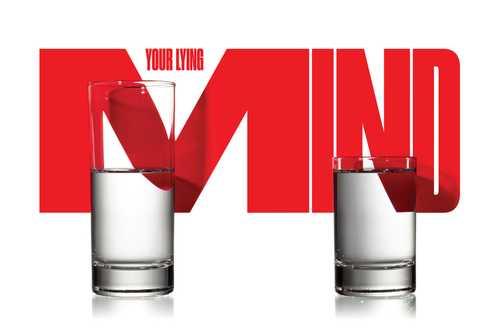The Cognitive Biases Tricking Your Brain
Curated from: theatlantic.com
Ideas, facts & insights covering these topics:
8 ideas
·6.29K reads
46
Explore the World's Best Ideas
Join today and uncover 100+ curated journeys from 50+ topics. Unlock access to our mobile app with extensive features.
The Way We Delude Ourselves
Cognitive Biases are a collection of faulty and illogical ways of thinking which are hardwired in the brain, most of which we aren’t aware of.
The idea of cognitive biases was invented in the 1970s by two social scientists Amos Tversky and Daniel Kahneman, with Kahneman winning the 2002 Nobel Prize in Economics for the same.
265
1.12K reads
Hyperbolic Discounting
It's a tendency to heavily weigh the moment which is closer to the present, as compared to something in the near or distant future.
Example: If you are offered a choice of $150 right now or $180 after 30 days, you would be more inclined to choose the money you are offered right now. However, if we take the present moment out of the equation, and put this offer in the distant future, where you are offered $150 in 12 months or $180 in 13 months, your choice is likely to be the latter one.
280
847 reads
Common Biases
- Actor-Observer Bias: the way the explanation of other people’s behaviour tends to focus on the influence of their personality while being less focused on the situation while being just the opposite while explaining one’s own behaviour.
- Zeigarnik Effect: when something unfinished and incomplete tends to linger in the mind and memory.
- The IKEA Effect: when our own assembling of an object is placed at a higher value than the other objects.
- Optimism Bias: makes us underestimate the cost and duration for every project we try to undertake or plan.
- Availability Bias: makes us believe whatever is more easily available to our consciousness, and is more vivid (or entrenched) in our memory.
300
817 reads
The Gambler Fallacy
It makes us certain without a doubt that if the flipped coin lands a heads up five times consecutively, it will land as tails up the sixth time. The real odds still stand at 50-50 for each flip.
259
805 reads
The Anchoring Effect
It's our tendency to place importance on the first figure that we hear or see and tends to greatly affect our decisions, estimates or predictions.
Negotiators use this tactic and start with an extremely high or low number, anchoring the subsequent deal in their favour.
273
690 reads
Sunk-Cost Fallacy
Sunk-cost thinking makes us stick with a bad decision due the investments already made.
259
744 reads
Cognitive Errors
- Fundamental Attribution Error is a bias in which we put too much weight on the external attributes of the individual while accessing their behaviour, paying less attention to the external factors that can be easily measured.
- Endowment Effect is when we place an irrationally high value on our possessions, as in a way they are part of our personality and ego.
- Faulty heuristics are another form of bias, referring to our own internal shortcuts and rules of thumb by which we make judgements or predictions.
269
577 reads
Confirmation Bias
This is one of the most common and dangerous ones, and is related to our beliefs. It leads us to ‘confirm’ what we already know, believe or suspect when any new piece of data comes in the light. If there is an alternate or conflicting piece of evidence, we tend to sideline, ignore or discount it. If it is too powerful to be ignored, it makes us experience cognitive dissonance.
People unconsciously seek to confirm their existing beliefs. To expand one's mind or prove any hypothesis, one should be looking for pieces of evidence that disprove it.
271
684 reads
IDEAS CURATED BY
Robert H.'s ideas are part of this journey:
Learn more about problemsolving with this collection
How to create a productive environment
The importance of self-care in productivity
How to avoid distractions
Related collections
Similar ideas
8 ideas
7 Cognitive Biases That Make Us Suck at Time Management
blog.doist.com
13 ideas
Types of Cognitive Biases That Distort How You Think
verywellmind.com
Read & Learn
20x Faster
without
deepstash
with
deepstash
with
deepstash
Personalized microlearning
—
100+ Learning Journeys
—
Access to 200,000+ ideas
—
Access to the mobile app
—
Unlimited idea saving
—
—
Unlimited history
—
—
Unlimited listening to ideas
—
—
Downloading & offline access
—
—
Supercharge your mind with one idea per day
Enter your email and spend 1 minute every day to learn something new.
I agree to receive email updates

